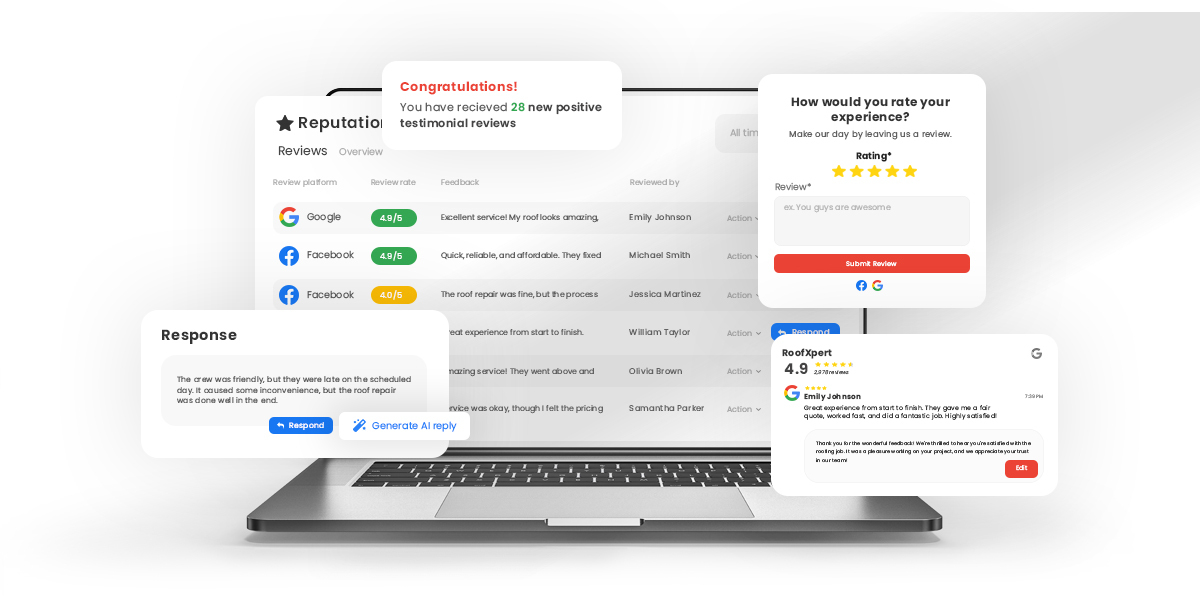
Digital Marketing Strategies for Small Businesses
Starting a new business is an exciting journey! Naturally, you would want to share the news with your family, friends, and loved ones. You hope everyone sees your new venture.
You want them to attend the opening day and assist in spreading the word. This will help establish your business and position it to compete effectively in the market. While word of mouth is valuable, wouldn’t it be even more effective to have additional tools to reach a broader audience?
Digital marketing for small businesses provides precisely that—enabling you to connect with more people and accelerate growth.
Here are 5 essential digital marketing strategies for small businesses to prioritize for maximum impact:
1. Google My Business (GMB)
If you’re new to the industry, one of the first things you’ll want to do is put your business on the map—literally! Optimizing your Google My Business (GMB) profile is super important for getting your business noticed.
Make sure your profile is complete. Keep it updated with important details like your location, hours, and contact info. Posting regular updates keeps your local community engaged. Encouraging customer reviews boosts your credibility and attracts more attention.
A well-optimized GMB profile boosts your chances of appearing in local search results. This is especially true for “near me” searches. This can drive more foot traffic to your business and get more people through the door.
2. Search Engine Optimization (SEO)
You may have come across the term SEO and wondered what it truly means. Imagine walking into a library of dull books, then spotting one with a vibrant cover and an interesting title. I believe you would be inclined to read it.
SEO functions in a similar way. It helps your website stand out to potential customers looking for products or services like yours.
Focusing on local SEO is a great starting point. Make your website better by using relevant keywords. Make sure your website works well on mobile devices and loads quickly. This will attract customers and keep them engaged, which can help you boost sales long term.
3. Social Media Marketing
In today’s world, social media platforms are essential for small businesses. They offer an easy way to grow your brand, connect with potential customers, and showcase your products or services. By posting regularly and using relevant hashtags, you can increase your reach and engagement across various marketing channels.
Additionally, responding to comments and messages helps build stronger connections with your audience. If you have some extra budget, running targeted ads can further amplify your message and attract the right customers.
4. Content Marketing
Content marketing is another powerful strategy for small businesses. Sharing blog posts, guides, and useful content helps position your business as an industry expert. This builds trust and encourages potential customers to choose your services when needed. Sharing this content on your social media channels increases visibility and strengthens your online presence.
Digital marketing for small businesses can thrive through consistent content marketing. By providing valuable insights and showcasing your expertise, you can build a loyal audience over time.
5. Email Marketing & Newsletters
If you think email marketing is old-fashioned, it’s time to reconsider! Studies show that email is still one of the cheapest ways to connect with customers. A great tool for sharing news, promotions, and updates helps you keep your audience engaged and coming back for more.
Building an email list, personalizing your messages, and segmenting your audience for specific content will enhance your marketing efforts. Be sure to include a landing page or a clear call to action to effectively drive sales and engagement.
6. Online Reviews & Reputation Management
Positive reviews are crucial for building trust, especially for local businesses. 75.5% of consumers rely on online reviews for purchase decisions, and 49% of consumers trust them as much as recommendations from friends and family.
The more reviews you have, the more trust you build—and trust leads to increased sales. Make it a habit to ask happy customers for reviews.
Timing is everything, so ask right after they’ve had a great experience with your business. And don’t shy away from responding to both positive and negative feedback. Taking charge of your reputation shows that you value your customers and their pain points. It also helps you build a lasting relationship.

7. Pay-Per-Click (PPC) Advertising
PPC ads are a great way to quickly reach your target audience and drive traffic to your website. In a PPC model, you pay a fee each time a user clicks on your advertisement.
For small businesses, local PPC targeting is essential. Use platforms like Google Ads or Facebook Ads to focus on specific geographic areas. Target keywords that are relevant to your business, and create engaging ad copy with strong calls to action like “Shop Now” or “Book Today.”
8. Influencer Marketing
Partnering with influencers who are trusted in your industry can help increase your brand’s visibility. Contact local influencers or micro-influencers who share your business values. They can help promote your products or services to their followers.
The number of followers is not as important as ensuring those followers connect with your brand and message. Influencer marketing can be a powerful way to expand your reach and grow your customer base.
9. Analytics and Tracking
To effectively make your marketing efforts work, it’s important to track and measure the results. Using tools like Google Analytics, social media insights, and email marketing software can help you track key metrics. These metrics include website traffic, engagement, and conversions. These insights will help you improve future campaigns.
Marketing for small businesses requires constant adaptation. By tracking performance, you can make data-driven decisions and continually improve your strategies.
10. Video Marketing
Video content is incredibly engaging and one of the most effective ways to grab attention. People are more likely to watch, share, and comment on videos than other types of content.
Create short, informative, and entertaining videos for social media platforms, YouTube, and your website. Highlight your products, services, and showcase customer success stories, and tailor the video length to fit each platform.
With these strategies in place, you’ll be on the right path to building a strong online presence and growing your business. Digital marketing for small businesses might seem overwhelming at first, but by taking things one step at a time, and utilizing tools like ReviewPoint’s AI-powered platform, you can streamline your efforts and make a real difference!
This Post Has 0 Comments